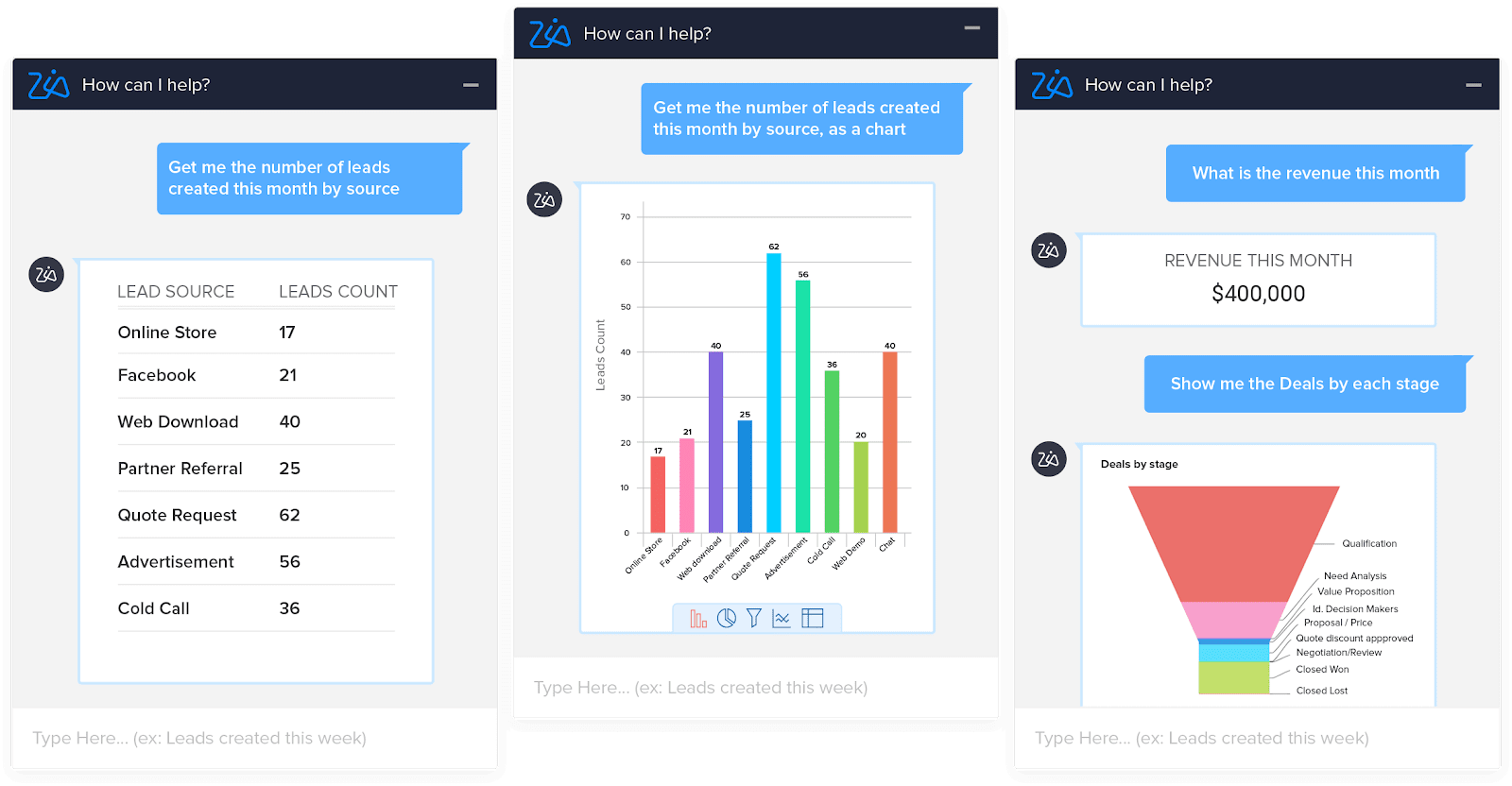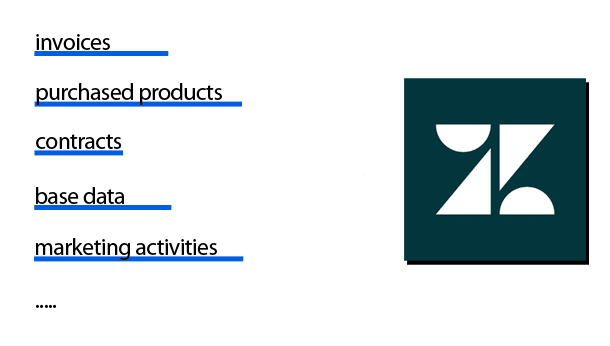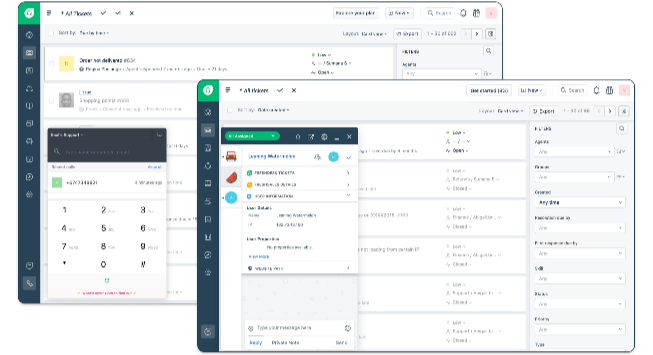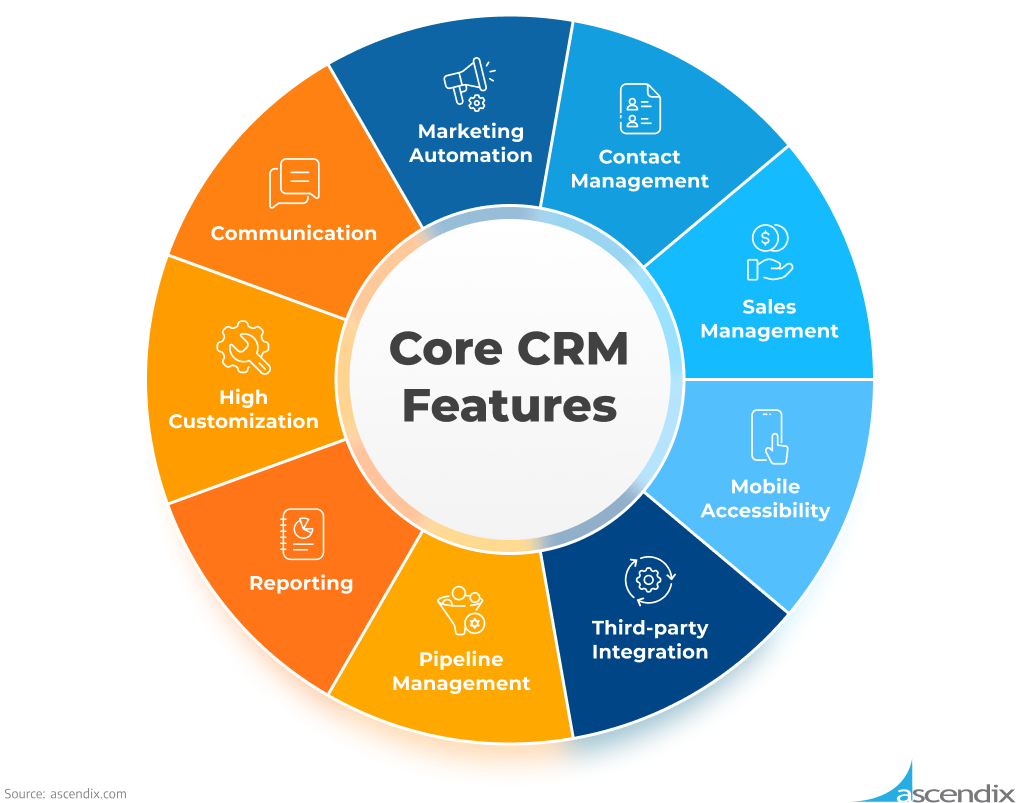Unlock Customer Loyalty: The Power of CRM Marketing Mobile Apps

In today’s fast-paced digital landscape, businesses are constantly seeking innovative ways to connect with their customers, streamline operations, and boost profitability. One of the most powerful tools in this arsenal is the CRM (Customer Relationship Management) marketing mobile app. These apps are revolutionizing the way businesses interact with their customers, providing unprecedented levels of accessibility, personalization, and efficiency. This comprehensive guide will delve deep into the world of CRM marketing mobile apps, exploring their benefits, features, implementation strategies, and future trends. Get ready to unlock the secrets to customer loyalty and business success!
What is a CRM Marketing Mobile App?
At its core, a CRM marketing mobile app is a mobile application designed to provide users with access to their CRM data and functionalities on the go. It allows sales representatives, marketing professionals, and customer service agents to manage customer interactions, track sales progress, analyze marketing campaigns, and provide support from anywhere, anytime. Imagine having the power of your CRM system in the palm of your hand – that’s the essence of a CRM marketing mobile app.
Unlike traditional desktop-based CRM systems, mobile apps offer unparalleled flexibility and convenience. They enable real-time data access, immediate updates, and seamless communication, regardless of location. This is particularly crucial in today’s mobile-first world, where customers expect instant responses and personalized experiences.
Key Benefits of CRM Marketing Mobile Apps
The advantages of incorporating CRM marketing mobile apps into your business strategy are numerous and far-reaching. Let’s explore some of the most significant benefits:
- Improved Customer Engagement: Mobile apps enable businesses to engage with customers in real time, providing instant access to information, personalized offers, and proactive support. This fosters stronger customer relationships and enhances loyalty.
- Increased Sales Productivity: Sales representatives can access customer data, manage leads, track sales progress, and close deals from anywhere. This leads to increased efficiency, faster sales cycles, and higher conversion rates.
- Enhanced Marketing Effectiveness: Marketing professionals can monitor campaign performance, track customer behavior, and personalize marketing messages on the go. This results in more targeted campaigns, improved ROI, and increased customer acquisition.
- Streamlined Customer Service: Customer service agents can access customer data, resolve issues quickly, and provide personalized support from their mobile devices. This leads to higher customer satisfaction and reduced support costs.
- Real-Time Data Access and Insights: Mobile apps provide instant access to critical CRM data, allowing businesses to make informed decisions based on real-time insights. This enables proactive problem-solving, improved forecasting, and enhanced business agility.
- Increased Collaboration and Communication: Mobile apps facilitate seamless collaboration and communication among team members, regardless of location. This fosters a more connected and productive workforce.
- Cost Savings: By automating tasks, improving efficiency, and reducing the need for physical meetings, CRM marketing mobile apps can lead to significant cost savings.
Essential Features of a CRM Marketing Mobile App
To maximize the benefits of a CRM marketing mobile app, it’s crucial to choose one that offers a comprehensive set of features. Here are some of the must-have features:
- Contact Management: Easily manage and access customer contact information, including names, phone numbers, email addresses, and social media profiles.
- Lead Management: Track and manage leads, qualify them, and assign them to sales representatives.
- Sales Automation: Automate sales processes, such as lead nurturing, follow-up reminders, and deal tracking.
- Task Management: Create, assign, and track tasks to ensure that activities are completed on time.
- Calendar and Scheduling: Schedule appointments, meetings, and calls, and sync them with your calendar.
- Sales Reporting and Analytics: Generate reports and analyze sales data to track progress, identify trends, and make informed decisions.
- Mobile Access to Documents: Access and share documents, such as proposals, contracts, and presentations, from your mobile device.
- Offline Access: Access key data and functionality even without an internet connection.
- Push Notifications: Receive real-time updates and alerts about important events, such as new leads, sales opportunities, and customer interactions.
- Integration with Other Systems: Integrate your CRM mobile app with other business systems, such as email, social media, and accounting software.
Choosing the Right CRM Marketing Mobile App
With a plethora of CRM marketing mobile apps available in the market, choosing the right one for your business can be a daunting task. Here are some factors to consider when making your decision:
- Ease of Use: The app should be user-friendly and easy to navigate, with an intuitive interface that allows users to quickly access the information and features they need.
- Features and Functionality: Ensure that the app offers the features and functionality that are essential for your business needs.
- Integration Capabilities: The app should be able to integrate with your existing business systems, such as email, social media, and accounting software.
- Mobile Compatibility: The app should be compatible with your mobile devices, including iOS and Android devices.
- Security: The app should have robust security measures in place to protect your customer data.
- Scalability: The app should be able to scale to meet the growing needs of your business.
- Pricing: Consider the pricing of the app and choose one that fits your budget.
- Customer Support: Ensure that the app provider offers excellent customer support.
- Reviews and Ratings: Read reviews and ratings from other users to get an idea of the app’s strengths and weaknesses.
Some of the leading CRM marketing mobile apps in the market include:
- Salesforce Sales Cloud: A comprehensive CRM platform with a robust mobile app that offers a wide range of features and functionalities.
- HubSpot CRM: A user-friendly CRM platform with a free mobile app that is ideal for small businesses and startups.
- Zoho CRM: A feature-rich CRM platform with a mobile app that offers a variety of customization options.
- Microsoft Dynamics 365: A comprehensive CRM platform with a mobile app that integrates with other Microsoft products.
- Pipedrive: A sales-focused CRM platform with a mobile app that is designed to help sales teams close deals faster.
Implementing a CRM Marketing Mobile App: A Step-by-Step Guide
Implementing a CRM marketing mobile app successfully requires careful planning and execution. Here’s a step-by-step guide to help you get started:
- Define Your Goals and Objectives: Clearly define your goals and objectives for implementing the CRM marketing mobile app. What do you want to achieve? What are your key performance indicators (KPIs)?
- Assess Your Needs: Evaluate your current CRM needs and identify the features and functionalities that are essential for your business.
- Choose the Right App: Based on your needs and requirements, choose the CRM marketing mobile app that best fits your business.
- Plan Your Implementation: Develop a detailed implementation plan that outlines the steps you need to take to deploy the app.
- Train Your Team: Provide adequate training to your team on how to use the app and its features.
- Migrate Your Data: Migrate your existing CRM data to the new app.
- Customize the App: Customize the app to meet your specific business needs.
- Test the App: Test the app thoroughly to ensure that it is working correctly.
- Launch the App: Launch the app and start using it.
- Monitor and Evaluate: Monitor the app’s performance and evaluate its effectiveness. Make adjustments as needed.
Best Practices for CRM Marketing Mobile App Success
To ensure the success of your CRM marketing mobile app, it’s important to follow these best practices:
- Prioritize User Experience: Design the app with a focus on user experience, making it easy to use and navigate.
- Provide Regular Training: Provide ongoing training to your team to ensure that they are proficient in using the app.
- Encourage Adoption: Encourage your team to use the app regularly and provide incentives for its use.
- Integrate with Other Systems: Integrate the app with your other business systems to streamline your workflows.
- Monitor Performance: Monitor the app’s performance and make adjustments as needed.
- Gather Feedback: Gather feedback from your team and customers to identify areas for improvement.
- Stay Up-to-Date: Stay up-to-date on the latest trends and features in CRM marketing mobile apps.
- Focus on Data Security: Implement robust security measures to protect your customer data.
- Personalize the Experience: Use the app to personalize the customer experience.
The Future of CRM Marketing Mobile Apps
The future of CRM marketing mobile apps is bright, with exciting developments on the horizon. Here are some of the key trends to watch:
- Artificial Intelligence (AI): AI-powered features, such as chatbots, predictive analytics, and automated workflows, will become more prevalent in CRM marketing mobile apps.
- Personalization: Businesses will leverage AI and data analytics to personalize customer experiences at scale.
- Mobile-First Design: Mobile-first design will become the standard, with CRM marketing mobile apps designed specifically for mobile devices.
- Integration with IoT: CRM marketing mobile apps will integrate with the Internet of Things (IoT) devices to provide real-time data and insights.
- Enhanced Security: Security will continue to be a top priority, with advanced security measures, such as biometric authentication and data encryption, becoming more common.
- Voice-Activated CRM: Voice-activated CRM capabilities will become more prevalent, allowing users to interact with the app using voice commands.
- Augmented Reality (AR): AR technology will be used to create immersive customer experiences and provide interactive product demonstrations.
- Focus on Customer Experience: The emphasis will shift towards creating seamless and personalized customer experiences across all touchpoints.
Conclusion: Embrace the Mobile Revolution with CRM
CRM marketing mobile apps are no longer a luxury; they are a necessity for businesses that want to thrive in today’s competitive landscape. By embracing these powerful tools, businesses can unlock the secrets to customer loyalty, increase sales productivity, enhance marketing effectiveness, and streamline customer service. From improved customer engagement to real-time data access, the benefits are undeniable.
By carefully selecting the right app, implementing it effectively, and following best practices, businesses can harness the full potential of CRM marketing mobile apps and achieve remarkable results. With the future of CRM marketing mobile apps looking brighter than ever, the time to embrace the mobile revolution is now. Don’t get left behind – empower your business with the tools it needs to succeed in the mobile-first world.
So, are you ready to transform your customer relationships and drive business growth? Start exploring the world of CRM marketing mobile apps today and experience the difference!




